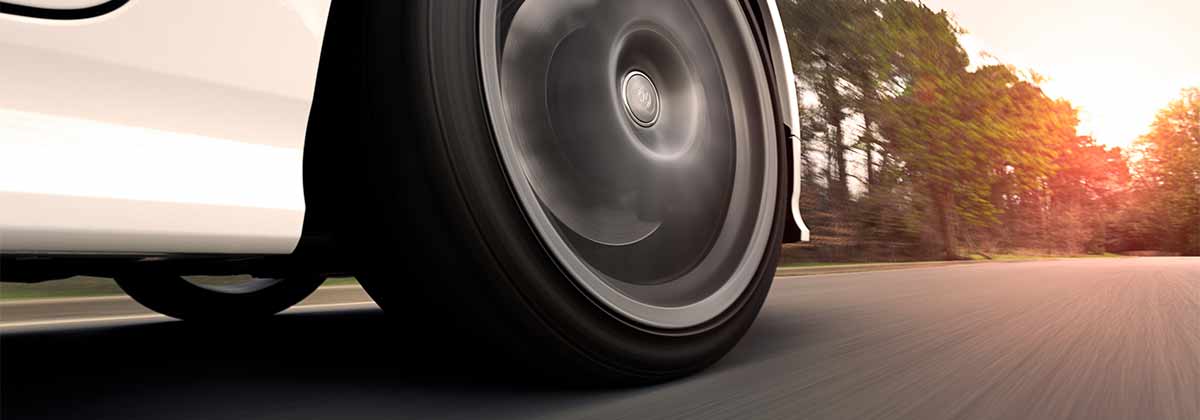It’s a battle of two tyre giants – Continental (Germany) versus Yokohama (Japan). Which brand has the best range for Aussie roads, and which provides the best value? Read on and you’ll leave this page with a good idea!
Continental has the richer history of the two, founded in 1871 as a rubber manufacturer, which has proven to be a common origin with tyre companies. Yokohama was founded in 1917 – right around the time Japan was at a naval war with Germany. The brand was established in Tokyo and quickly branched out around the world thanks to its partnership with BF Goodrich Tyres.
With the history lesson over, we’ve compared the two manufacturers and their consumer ranges, using the most common tyre size in Australia – 205/65/15. This size tyre is commonly found on cars such as some Toyota Corolla models as well as a number of other small passenger sedans and hatchbacks.
Continental has had a shaky history on the stockmarket, at one stage losing half of its market share. It bounced back recently though to return to its blue-chip German stock status. However, it’s what its tyres are made of that really matters. Find out how Continental and Yokohama tyres compare below.
Continental Car Tyres
Let’s start with the German giant Continental. A quick visit to its website makes you realise the brand is all about control and safety. This might suggest it’s not about mileage and economy as such, and that its tyres fetch a premium. The company’s slogan is “The Future in Motion”, suggesting it is a king of innovation. Tables below take into account approximate prices for 205/65/15 tyres:
| Model | Purpose | Approx Price Per Tyre |
| ContiComfortContact 5 | High mileage, low road noise | $122 |
| ContiPremiumContact 2 | All-rounder with grip and performance | $130-$158 |
| ContiPremiumContact 5 | Shorter braking distance, wet and dry performance | $131-$158 |
| UltraContact 6 | High performance and high grip | $143 |
| ContiComfortContact 1 | High mileage, low road noise | $146 |
| ContiProContact | All-season touring & fuel efficiency | $146 |
Source: Continental website April 2018
For the Aussie motorist who owns a small car with 15” wheels, choice is plentiful. There is a tyre to suit most uses, from those looking for a comfortable tyre for cruising, a high-performing tyre, or one for high mileage.
- The Premium Contact looks to be a good balance between performance, cost and mileage.
Continental, in typical German fashion, has provided a targeted, well-rounded offering, catering to the needs of both ends of the market – comfort, with a slight performance edge.
- Note that bigger wheels are becoming more common and for motorists with a tyre size bigger than 17”, expect to pay a fair bit more per tyre.
Overall, Continental’s tyre range is fairly comprehensive, but these tyres are a great option for every day, all-purpose use.
Shopping for Continental tyres? Check out JAX Tyres & Auto
Yokohama Car Tyres
A visit to the Yokohama website immediately leads you to believe that the brand is much more performance-oriented than its German rivals. Well-known as ‘ADVAN Tyres’ in Japan, they are commonly found in many motorsports leagues as the official tyre sponsor and supplier. Using the 205/65/15 tyre size as a yardstick, however, Yokohama looks to be a lot more eco-oriented than Continental.
| Model | Purpose | Approx Price Per Tyre |
| Bluearth AE01 | Compact cars, low rolling resistance, fuel efficiency | $128 |
| Bluearth ES32 | For compact cars, a quiet ride with a performance edge | $134 |
Source: Yokohama website April 2018
With only two matches for cars in this tyre size, Yokohama has a slightly shorter range than Continental in this regard. The model name straight away suggests this is not a tyre for performance and handling.
- In fact, Yokohama claims the AE01 model tyre will give you up to 10 per cent better fuel economy when it comes to urban driving.
How it arrived at that figure, we’re unsure, however this drastic fuel saving is an attractive prospect. The tyres, as Yokohama state, are made of a compound with lower rolling resistance, which suggests they are not built for cornering or handling purposes, though the ES32 does claim to provide performance characteristics at an accessible price. However, given the segment of car this tyre size is featured on, Yokohama can be forgiven for simply catering to market demand.
Shopping for tyres?
Continental Vs Yokohama: Who’s the winner?
In this tyre segment, Continental and Yokohama appear to be pandering to different ends of the market. Continental is appealing to the customer looking for comfort and a slight performance and safety edge, whereas Yokohama is appealing to the fuel economy and eco-driven motorist.
- For the everyday motorist in an urban area we suspect both are safe brands to choose from.
It’s worth comparing the two brands in your own tyre size (specs are found on the tyre itself, or in your manual!) to see what each manufacturer offers, and what matches your budget and needs best. You may find that on a car larger than a hatchback, the tyre diameter may in fact be larger than 17”, and tyres can quickly skyrocket in sizes above this. Overall, it pays to know your own car tyre dimensions so you know what you can expect to pay the next time you need some new rubber.
Original Author: Harrison Astbury


Share this article